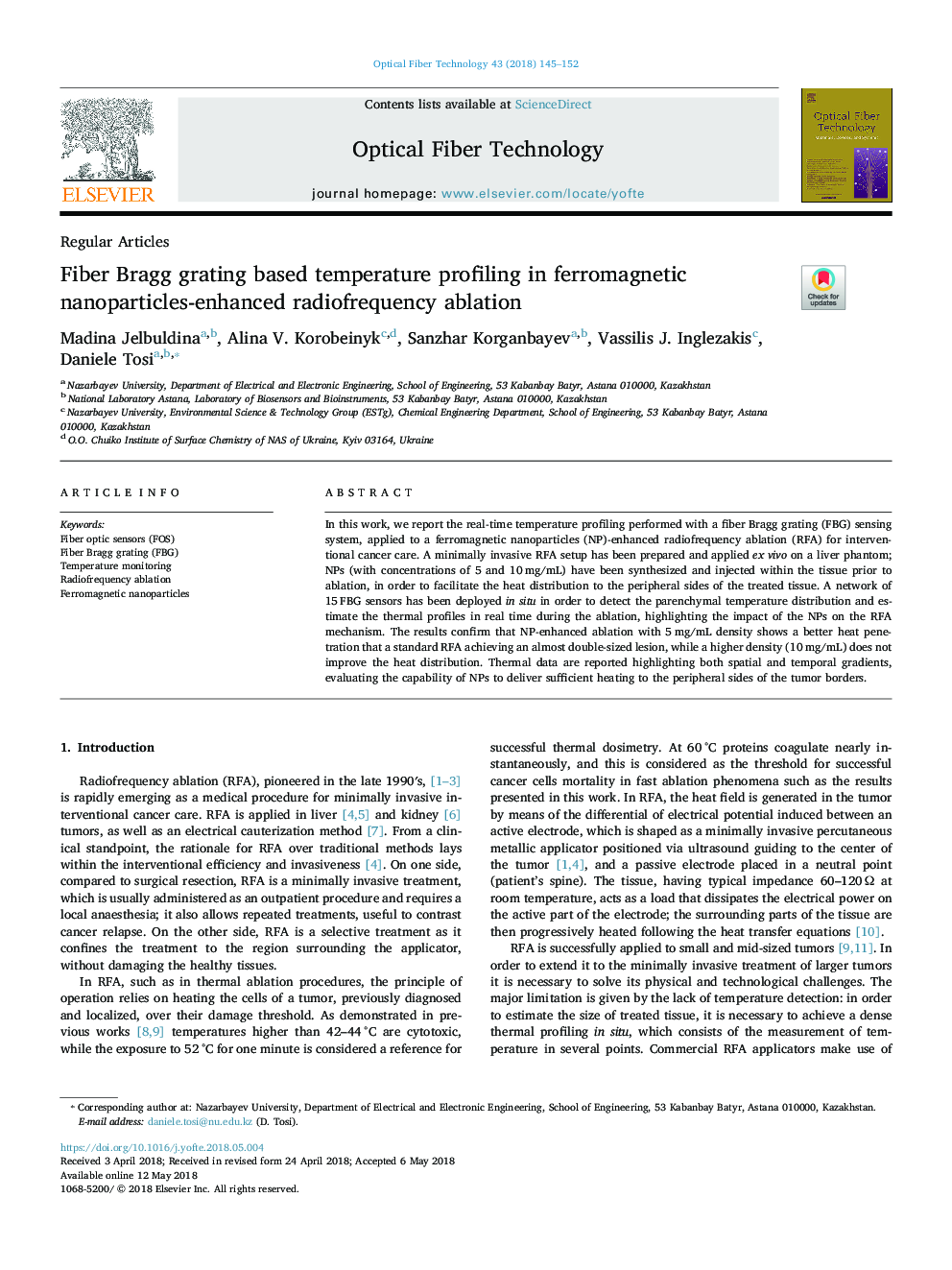| Article ID | Journal | Published Year | Pages | File Type |
|---|---|---|---|---|
| 6888277 | Optical Fiber Technology | 2018 | 8 Pages |
Abstract
In this work, we report the real-time temperature profiling performed with a fiber Bragg grating (FBG) sensing system, applied to a ferromagnetic nanoparticles (NP)-enhanced radiofrequency ablation (RFA) for interventional cancer care. A minimally invasive RFA setup has been prepared and applied ex vivo on a liver phantom; NPs (with concentrations of 5 and 10â¯mg/mL) have been synthesized and injected within the tissue prior to ablation, in order to facilitate the heat distribution to the peripheral sides of the treated tissue. A network of 15â¯FBG sensors has been deployed in situ in order to detect the parenchymal temperature distribution and estimate the thermal profiles in real time during the ablation, highlighting the impact of the NPs on the RFA mechanism. The results confirm that NP-enhanced ablation with 5â¯mg/mL density shows a better heat penetration that a standard RFA achieving an almost double-sized lesion, while a higher density (10â¯mg/mL) does not improve the heat distribution. Thermal data are reported highlighting both spatial and temporal gradients, evaluating the capability of NPs to deliver sufficient heating to the peripheral sides of the tumor borders.
Keywords
Related Topics
Physical Sciences and Engineering
Computer Science
Computer Networks and Communications
Authors
Madina Jelbuldina, Alina V. Korobeinyk, Sanzhar Korganbayev, Vassilis J. Inglezakis, Daniele Tosi,
